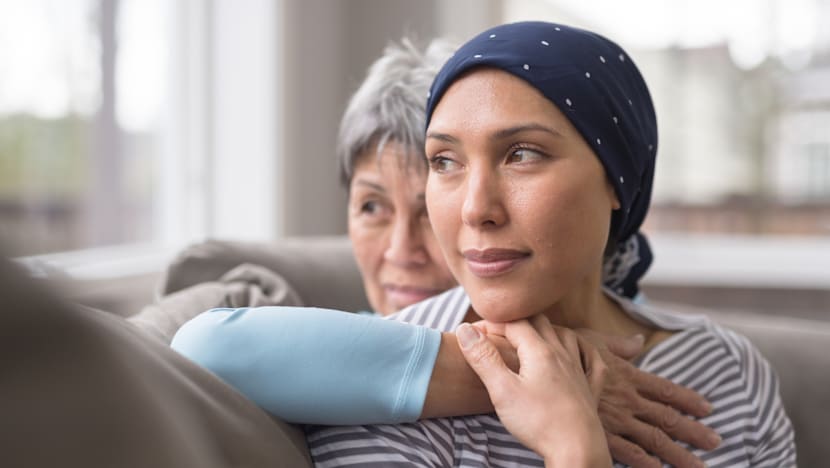Health
Singapore Doctors Urge Women to Recognize Key Breast Cancer Insights

The emotional toll of a breast cancer diagnosis can be overwhelming for women, often marked by shock and disbelief. Many question how this could happen to them, particularly if they believe they lead healthy lives and have no family history of the disease. According to Dr. Ang Wei-Wen, a consultant breast surgeon at Tan Tock Seng Hospital (TTSH), this reaction is common, yet breast cancer can affect anyone, often occurring spontaneously.
The reality is stark: approximately one in ten breast cancer cases in Singapore are diagnosed at Stage 4, a rate significantly higher than in other developed nations. For instance, in South Korea, less than one percent of new cases were Stage 4 in 2021, as reported by the Korean Breast Cancer Society. Dr. Sabrina Ngaserin, senior consultant breast surgeon and medical director of Breast Surgery Care Partners, emphasizes that only five to ten percent of breast cancer cases are inherited. The majority stem from a complex interplay of factors, making it crucial for women to be informed about their health and seek help promptly when they notice changes.
Understanding Breast Cancer: Age and Symptoms
Breast cancer does not discriminate by age. Dr. Lim Sue Zann, a senior consultant and breast surgeon at Solis Breast Care and Surgery Centre, notes that her youngest patient was just 19 years old, while her oldest was 98. Although most diagnoses occur in women over 50, one in six cases affects those under 45, leading to an estimated lifetime risk of developing breast cancer in Singapore of about 8.3 percent.
Self-examinations play an essential role in early detection. Dr. Lim advises women to start regular breast self-examinations at puberty, with timing tailored to menstrual cycles. For those who are post-menopausal, selecting a consistent time each month is crucial. Changes in size, shape, skin texture, and any unusual discharge should prompt immediate medical consultation. Dr. Ngaserin stresses that the earliest signs can be subtle, including textural changes, while more advanced symptoms might include dimpling or persistent nipple discharge.
The Importance of Regular Screening and Genetic Awareness
A common misconception is that a single clear mammogram ensures safety from breast cancer. Dr. Ang clarifies this by stating that a mammogram is merely a snapshot; new developments can occur between screenings. For women aged 40 to 49, annual screenings are recommended, while those aged 50 and above should have them every two years. This frequency reflects the varying aggressiveness of breast cancer across different age groups.
Concerns about radiation exposure from mammograms are often overstated. Dr. Ngaserin reassures women that the radiation dose is minimal, comparable to natural background exposure over a few weeks. Studies indicate that women who undergo regular screenings do not face a significantly increased risk of developing cancer. For those with dense breast tissue, additional advanced screening methods, such as contrast-enhanced breast MRI, may be beneficial.
Genetic factors also play a critical role in breast cancer risk. The BRCA1 and BRCA2 gene mutations can be inherited from either parent, making a comprehensive family history essential for considering genetic testing. If a family member tests positive for a mutation, it is advisable for other relatives to consider testing. Dr. Lim emphasizes that while a positive genetic test may increase risk, it does not guarantee a diagnosis. For instance, women with a BRCA1 mutation have an estimated lifetime risk of about 60 percent, but this does not equate to certainty.
Breast cancer can also occur in men, and hereditary mutations are strongly linked to male breast cancer diagnoses. Women should discuss testing options with their healthcare providers if they have a family history of the disease.
In summary, awareness and proactive health management are crucial for women facing the realities of breast cancer. By understanding the symptoms, risks, and the importance of regular screening, women can take significant steps toward safeguarding their health.
-

 World5 months ago
World5 months agoSouth Korea’s Foreign Minister Cho Hyun to Visit China This Week
-

 Business5 months ago
Business5 months agoStarling Bank Plans Secondary Share Sale, Targeting $5.4 Billion Valuation
-

 Top Stories5 months ago
Top Stories5 months agoMunsang College Celebrates 100 Years with Grand Ceremony
-

 World5 months ago
World5 months agoPAS Aims to Expand Parliamentary Influence in Upcoming Election
-

 Business7 months ago
Business7 months agoKenvue Dismisses CEO Thibaut Mongon as Strategic Review Advances
-

 Lifestyle6 months ago
Lifestyle6 months agoHumanism Camp Engages 250 Youths in Summer Fest 2025
-

 Sports6 months ago
Sports6 months agoDe Minaur Triumphs at Washington Open After Thrilling Comeback
-

 Sports7 months ago
Sports7 months agoTupou and Daugunu Join First Nations Squad for Lions Clash
-

 Top Stories7 months ago
Top Stories7 months agoColombian Senator Miguel Uribe Shows Signs of Recovery After Attack
-

 World7 months ago
World7 months agoASEAN Gears Up for Historic Joint Meeting of Foreign and Economic Ministers
-

 Health6 months ago
Health6 months agoNew Study Challenges Assumptions About Aging and Inflammation
-

 Business7 months ago
Business7 months agoOil Prices Surge Following New EU Sanctions on Russia









